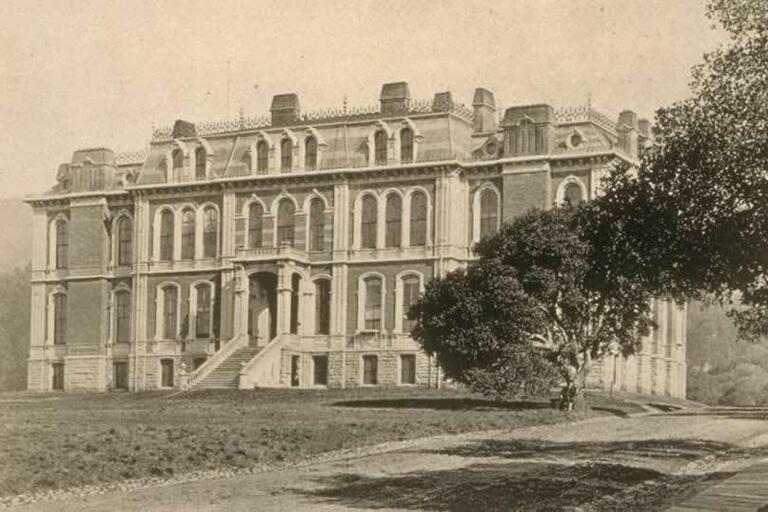
Robert G. Bergman was born in Chicago, Illinois, on May 23, 1942. After completing his undergraduate studies in chemistry at Carleton College in 1963, he received his Ph.D. at the University of Wisconsin in 1966 under the direction of Jerome A. Berson. While at Wisconsin he was awarded a National Institutes of Health Predoctoral Fellowship. Bergman spent 1966-67 as a North Atlantic Treaty Organization Fellow in Ronald Breslow’s laboratories at Columbia, and following that went to the California Institute of Technology as a Noyes Research Instructor. He was promoted to assistant professor in 1969, associate professor in 1971, and full professor in 1973. He accepted an appointment as Professor of Chemistry at the University of California, Berkeley, in July 1977, and moved his research group to Berkeley about a year later. In 2002 he was appointed Gerald E. K. Branch Distinguished Professor at Berkeley.
Bergman received an Alfred P. Sloan Fellowship (1969) and a Camille and Henry Dreyfus Foundation Teacher-Scholar Award (1970) while he was an assistant professor. Also while at Caltech, he received a California Institute of Technology Student Government Award for Excellence in Teaching in 1978. After moving to Berkeley, Bergman was elected to membership in the National Academy of Sciences and the American Academy of Arts and Sciences in 1984. Among his other awards are the second American Chemical Society Award in Organometallic Chemistry (1986), an ACS Arthur C. Cope Scholar award in Fall, 1987, the E.O. Lawrence Award in Chemistry (U.S. Department of Energy, 1994) the American Chemical Society Arthur C. Cope Award in 1996, and the ACS James Flack Norris Award in Physical Organic Chemistry (2003). In 2001 he received the Edward Leete Award for Teaching and Research in Organic Chemistry, and in 2002 the UC Berkeley Department of Chemistry Teaching Award. He received an Award for Excellence in Technology Transfer from the Lawrence Berkeley National Laboratory in 2005. In 2007 he was chosen by the National Academy of Sciences to receive the NAS Award in Chemical Sciences. In 2008 he received the T.W. Richards Medal from the Northeastern Section of the American Chemical Society and the Royal Society of Chemistry Sir Edward Frankland Prize Lectureship. He has been involved in several community outreach education efforts, and for those he received The Chancellor’s Award for Public Service from UC Berkeley in 2008-09 and 2011-12. In 2011 he received the Willard Gibbs Award from the ACS the Chicago Section and ACS Fellow. In 2013 he received the Distinguished Graduate Student Mentoring Award (2013) and an Honorary Doctorate from Texas A&M University. In 2014 he received several awards the ACS George Olah Award in Hydrocarbon Chemistry, the Welch Foundation Award in Chemistry, and Royal Society of Chemistry Robert Robinson Award. In 2017 he received the University of Wisconsin Distinguished Alumni Award and the Wolf Prize.
Bergman has served as a member of several local and national committees, including the National Institutes of Health Bioanalytical and Metallobiochemistry Study Section (1976-80). At Berkeley he has served as Vice-chair of the Department of Chemistry (1985-87) and three times as Assistant Dean of the College of Chemistry (1987-91, 1996, and 2004-2006). He has been a member of several Editorial Advisory Boards, including the Journal of Organic Chemistry (1980-83; 1996-1998), Organometallics (1981-84 and 1992-95), Chemical Reviews (1981-84), the International Journal of Chemical Kinetics (1986-89), the Journal of the American Chemical Society (1990-95), and Organic Letters (1999 – 2002). He has also been elected to serve on the Executive Committees of both the Organic Division (1981-84) and the Inorganic Division (1984) of the American Chemical Society, the latter as chairman of the Organometallic Subdivision. He has served on Chemistry Department Review Committees for the California Institute of Technology, the University of Nevada at Reno, the University of Michigan at Ann Arbor, Harvard University, Rutgers University, North Carolina State University, and the University of California, Santa Barbara He currently serves on the University of Wisconsin Chemistry Board of Advisors.

Bergman was trained as an organic chemist and spent the first part of his independent career at Caltech investigating the mechanisms of organic reactions. He also developed methods for the generation and study of unusually reactive molecules, such as 1,3-diradicals and vinyl cations. In 1972 he discovered the thermal cyclization of cis-1,5-hexadiyne-3-enes to l,4-dehydrobenzene diradicals. In the 1980’s this transformation of enediynes was identified as a crucial DNA-cleaving reaction in several antibiotics that bind to nucleic acids, and the enediyne reaction is now often referred to as the “Bergman cyclization”. In the mid-1970’s Bergman’s research broadened to include organometallic chemistry. Since moving to Berkeley he has made contributions to the synthesis and chemistry of several types of organotransition metal complexes and to improving our understanding of the mechanisms of their reactions. In this area he has focused on migratory insertion and oxidative addition reactions, the chemistry of new dinuclear complexes, the investigation of organometallic compounds having metal-oxygen and -nitrogen bonds (as part of this work he uncovered one of the earliest examples of early-transition metal alkyne and allene hydroamination processes), and the reactions of organotransition metal enolates. He is probably best known for his discovery of the first soluble organometallic complexes that undergo intermolecular insertion of transition metals into the carbon-hydrogen bonds of alkanes and the use of liquefied noble gas solvents in the study of these reactions, and recently he has been involved in the application of C-H activation reactions to problems in organic synthesis. In other recent efforts he has initiated research in green chemistry, specifically targeting the metal-catalyzed dehydroxylation of polyols and catalyzed methods for the degradation of lignin, and a collaboration aimed at developing catalytic chemistry mediated by supramolecular systems
Bergman transitioned to Emeritus status in 2016 and now holds the titles of Professor of the Graduate School and Gerald E. K. Branch Distinguished Professor Emeritus. He has been recalled by the College of Chemistry and continues to teach, do collaborative research, and continue service and outreach activities for the College and the University.


